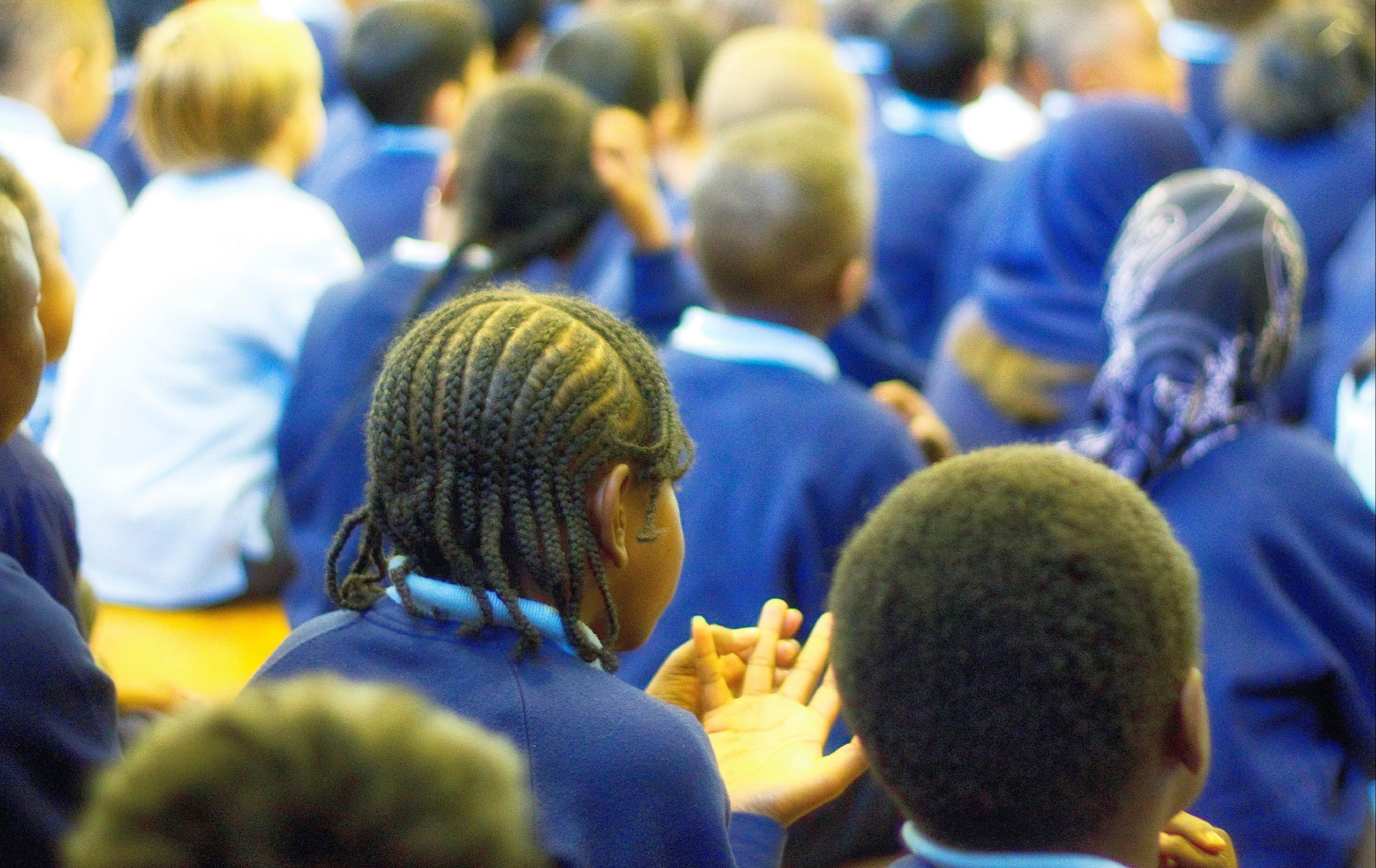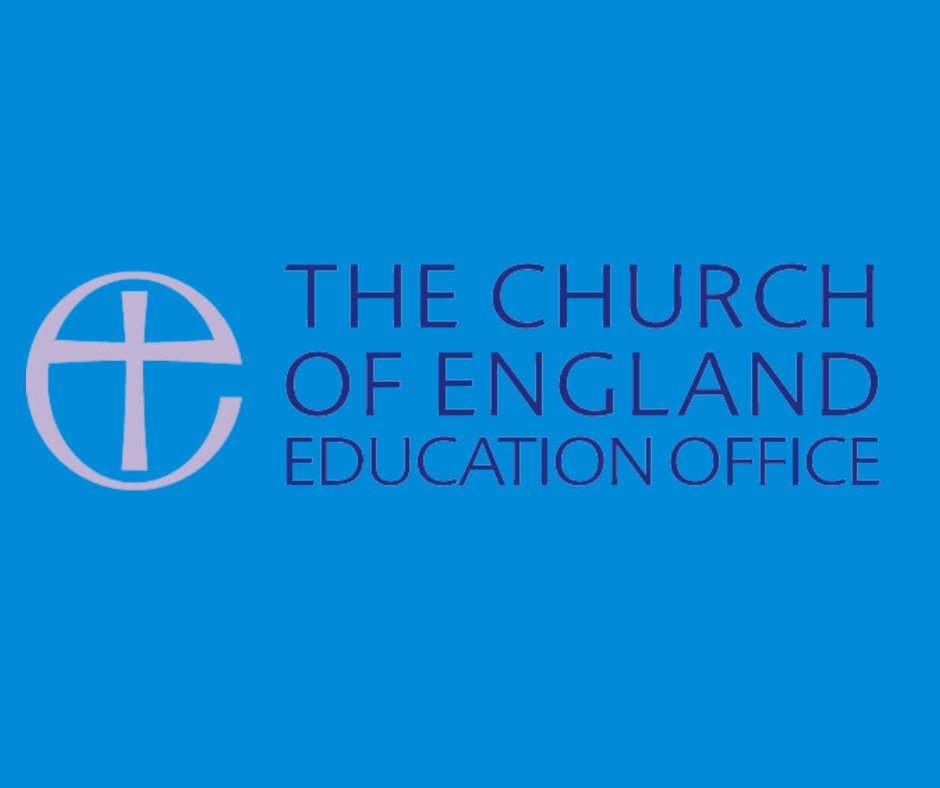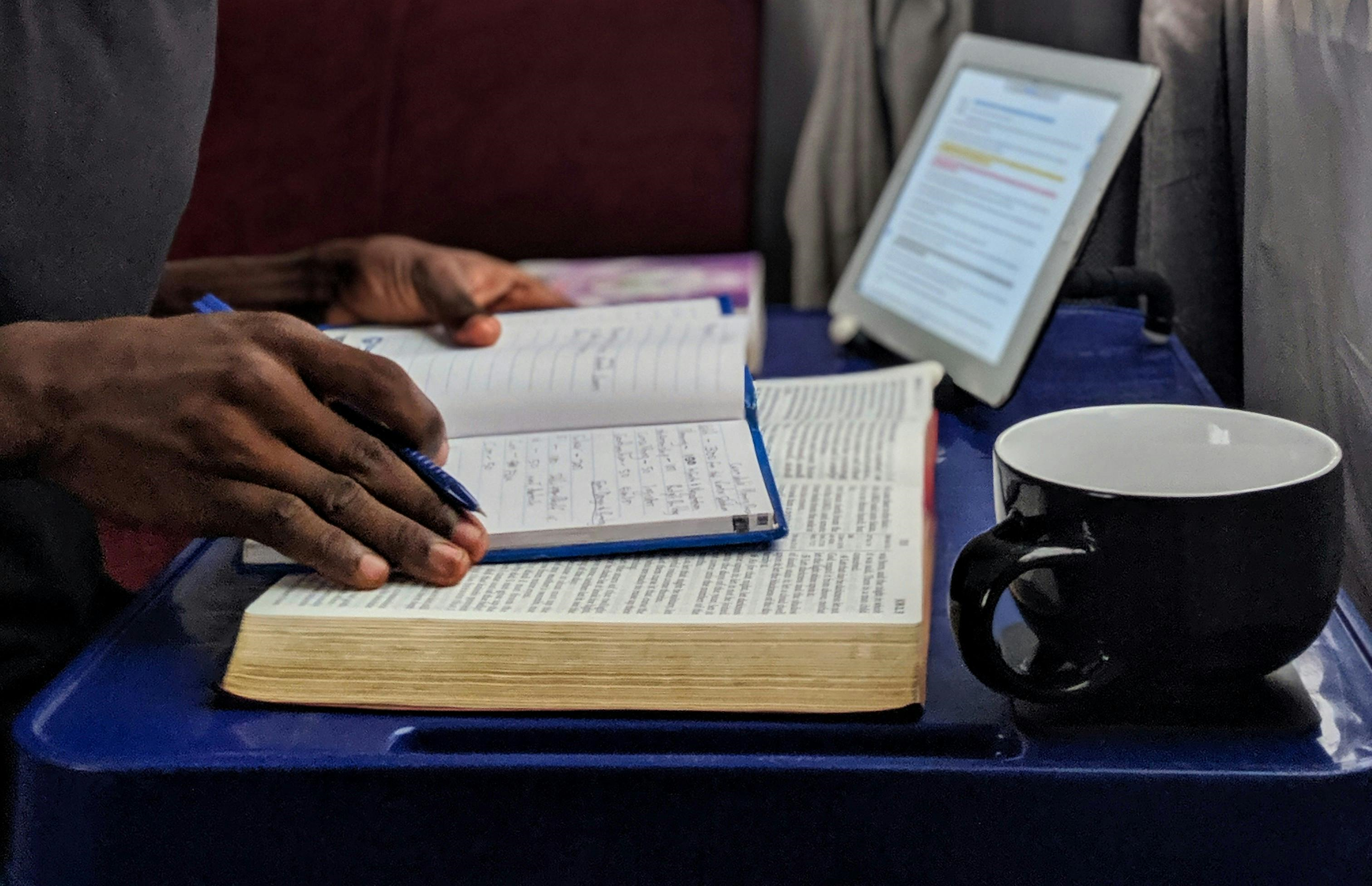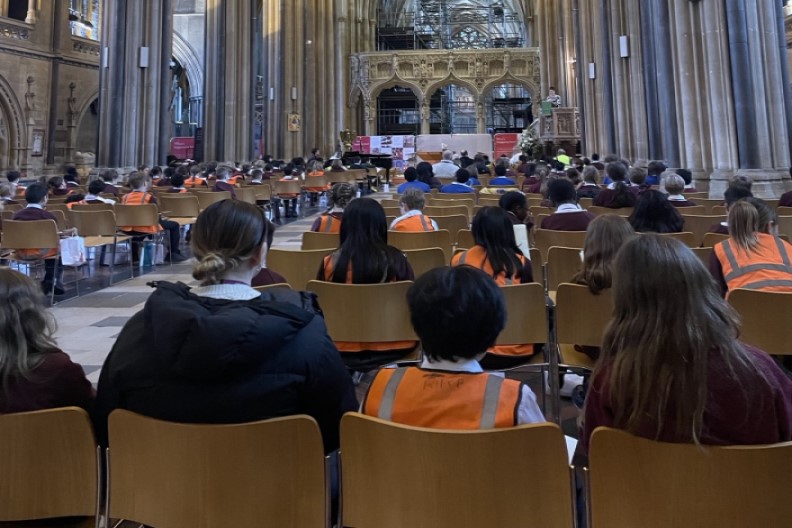There are 72 Church of England schools in the diocese across Bristol, South Gloucestershire, North Wiltshire and Swindon: 69 primary and three secondary. We also work with non-Church of England schools, colleges and higher education institutions.
Education Team and Board of Education
Find out who's who in the Diocesan Education Team and the Board of Education.
Training, Support & Events
Explore the range of courses and support we offer as well as our conferences.
SIAMS & Church School Inspections
Useful links and resources.
Church of England Vision for Education
RE Resources
Collective Worship & Other Curriculum Resources
The Church of England has a strong legacy of providing education over hundreds of years. The Diocesan Board of Education and its Education Team of officers led by the Diocesan Director of Education aim to ensure that all children can experience ‘life in all its fullness’ through a high quality provision that enables them to flourish in all that they are and do. This is an education that is academically robust, distinctive in its care and inclusion of all, underpinned by Christian values that promote the development of character and opportunities for spiritual development. In such a system, school leaders and their staff will be well supported through the work that we do due to a legacy of support at many levels:
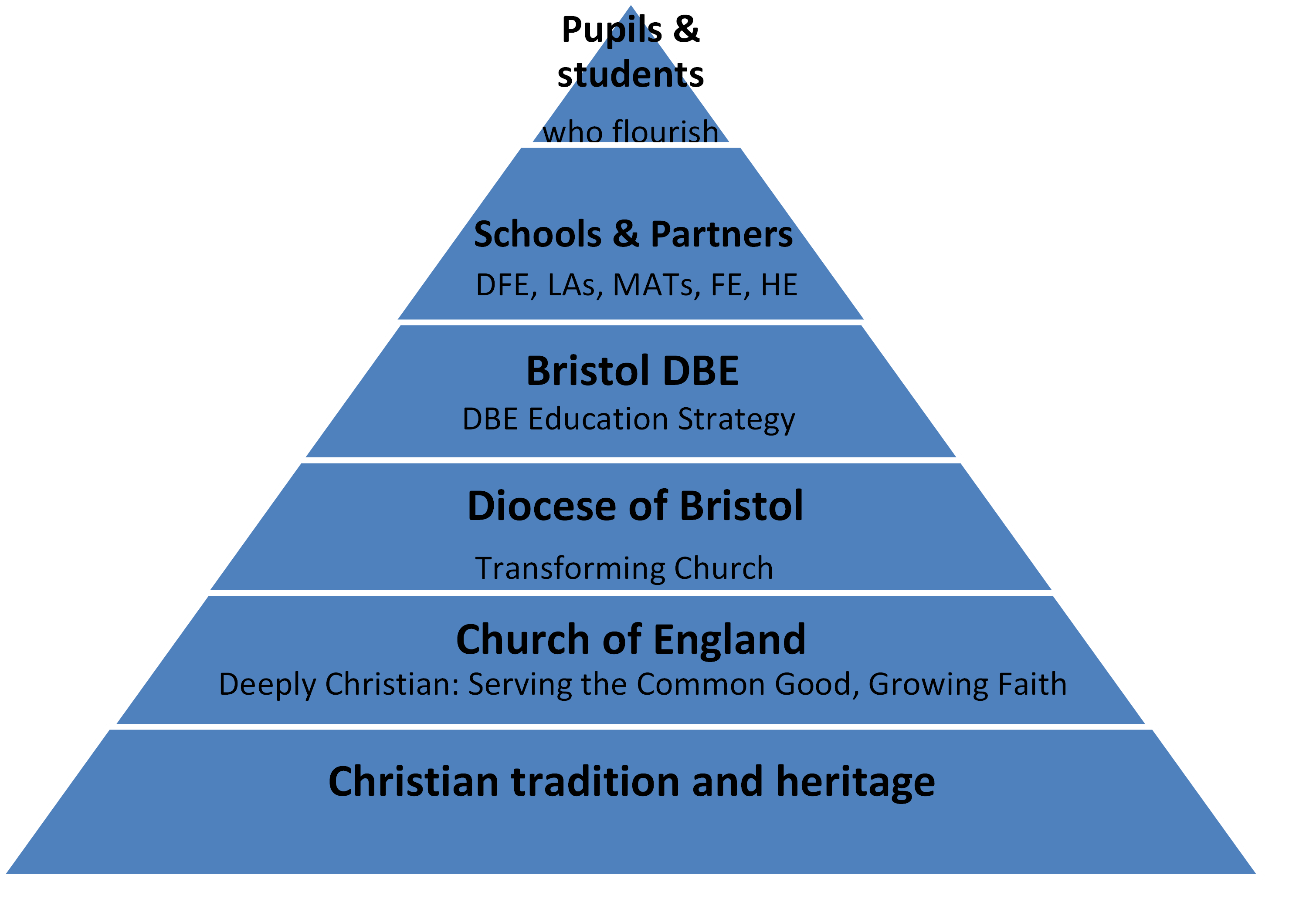
The DBE is a statutory body in every diocese answerable to the Bishops Council and Diocesan Synod. It establishes the direction and key purposes of Education work in the diocese. It acts as the Governance structure to ensure the effectiveness and distinctiveness of the Diocesan Education team and align activity to the national Church of England Education Office and other Bristol diocese teams. DBE’s can be incorporated into diocesan companies or stand alone as legal entities. In this diocese, from Sept 2022, the DBE is a committee of the diocesan Board of Finance. Under the DBE Measure, Bristol DBE Scheme and Terms of Reference, the DBE retains particular decision making powers as a separate body from the DBF.
The current DBE Measure (2021) sets out the general functions of a DBE which are :
(a) promote or assist in the promotion of education in the diocese that is consistent with the faith and practice of the Church of England;
(b) promote or assist in the promotion of religious education and religious worship in schools in the diocese;
(c) promote or assist in the promotion of church schools in the diocese;
(d) promote co-operation between itself and other persons concerned with education in the diocese.
There are additional responsibilities in the Measure set out specifically in the Terms of reference.
The members of the DBE beginning in September 2022 have a three year term of office. The Board meets four or five times a year with committees with delegated powers. All members serve corporately for the good of all children and young people, not serving personal interests. There are additional youth members without voting rights who attend meetings. The DBE instruct and advise the DDE and Education Team often working collaboratively with them.
The Diocesan Board of Education and the Education Team have a role in overseeing and supporting church schools. There are 72 CE schools in the diocese across Bristol, South Gloucestershire, North Wiltshire and Swindon: 69 Primaries, 3 secondary.
The provision of education must be in accordance with the tenets of the Church of England. Therefore, in a Church of England school, and dependent on its VA/ VC foundation, including academies, at least two members and often more, of its governing body is appointed to represent the interests of the Church of England.
The DBE with its Education officers appoint, train and advise foundation (church) governors as well as full governing bodies. They provide guidance on local, national and church issues. including consultation and guidance for school admissions and leadership models
The Board and team work closely with national church through the Church of England Education Office, DfE, LA, academy trust officers and governors to support the education to all pupils and young people. The education team also work with non CE schools, colleges, higher education institutions and children and young people involved with churches regardless of the school they attend.
Before the government became involved with providing education for everyone in England, there were church schools and other charitable schools. When the state became involved with providing mass education, church schools became integrated into the education provided by the state but with certain protections for maintaining their Christian foundation.
The ethos of a school can be strongly influenced by its Christian foundation, leading to a unique vision, set of values, explicit development of character and regular opportunities for exploring faith, meaning and identity. The purpose of a Church of England school is therefore to offer a full academic education as per all other schools, but enable it to be further enriched through exploring a spiritual dimension for both the young people and staff, within the traditions of the Church of England. Undoubtedly a strong collaborative relationship with the local church community is vital to nourish and bless this exploration and provides opportunities to practise faith if desired. Christian distinctiveness and inclusion arising from understanding of the person and character of Christ and therefore a way to live in community with others, therefore contributes to a high quality education, a broad and balanced curriculum for all, and highly inclusive practice.
The DBE oversees and supports the work of all 72 of the Church of England schools in the Diocese through the Education Team. Among these 72 schools, we have Voluntary Aided Schools, Voluntary Controlled Schools, and Academies. The Academies are either Single Academy Trusts, or one of a number of schools within a Multi Academy Trust. When a school becomes a trust, the trust takes on minority or majority Articles to assure the christian distinctiveness of each CE school continues to be protected. The Diocese of Bristol Diocesan Board of Education builds and maintains relationships across the whole family of church schools, regardless of the organisational structure of individual or groups of schools, such that it has equal confidence in all Local Authority schools (voluntary controlled and voluntary aided), Multi Academy Trusts (MATs), and Single Academy Trusts (SATs).
No, LAs and trusts ‘run’ their schools through their governance structures following funding agreements with the DfE and in the case of academies, their Church Supplemental Agreements. The DBE provides challenge and support to Church of England schools within the Diocese, particularly in relation to Christian ethos and the development of school vision, value and character, Religious Education, Worship, Governance and buildings.
Most church school buildings and some land surrounding them have site trustees that usually include the DBF and sometimes churchwardens, incumbents or other local church trustee arrangements that may date back centuries. Church of England schools must therefore seek advice or consent from the DBE in certain circumstances, for example, before land or building moves, alterations and additions to the school, appointing a headteacher or considering a new governance model, including academisation.
In current government policy, the Department for Education have articulated in their spring 2022 White Paper that all LAs schools should be part of, or in the process of joining a strong MAT by 2030. A Schools Bill is in preparation to move some of the White Paper into law.
Bristol DBE have written a Growth and Sustainability policy and are engaged in the ongoing process of making sure that all schools leaders, including heads and governors are well aware of potential options for academisation and are preparing to make responsible choices within the next decade. CE schools must enter MATs with CE governance at all levels (Main and Local Boards, Directors (Trustees) and Members) in line with their original VC/ VA foundation. This is a fast moving and complex area of current work for the DBE.
Whether church schools are single academies or part of a MAT, they remain a valuable part of the DBE family. The DBE team serve all CE schools regardless of their leadership models. They also serve a number of non CE schools too, particularly but not exclusively in their work through statutory LA bodies called Standing Advisory Councils for Religious Education (SACREs).
All Church of England Schools are inspected to ensure that they are taking their foundation seriously and are running as a Church school. SIAMS inspection explores the question, “How effective is the school’s distinctive Christian vision, established and promoted by leadership at all levels, in enabling pupils and adults to flourish?”
This inspection process is funded by the DfE, and organised in partnership between the Church of England Education Office and the Diocese. The administration, delivery and quality assurance of the process is largely run nationally. The diocese’s main responsibility to ensure training around the SIAMS framework for all, such that schools and their governors are fully equipped for their inspection. Work towards ‘life in all its fullness’ needs to be ongoing at all times for a positive summative inspection and the place of Christian distinctiveness needs to remain at the core of school operations.
As a diocese, we are proud to report mainly good and better SIAMS results due to engagement with our Education team in high quality training and bespoke work with individual and groups of schools.
Like Ofsted, each new iteration of the SIAMS inspection schedule is more rigorous and in 2023 there will be a new framework again. Following the disruption of the pandemic the regular five yearly inspection schedule has been interrupted but inspections are once again well underway.
Yes and No. Both SIAMs and Ofsted inspections are vitally important in CE schools, they measure different aspects of a high quality education in a CE school. The national SIAMS team publish a list of schools to be inspected in the following twelve months and inform the Education team of dates shortly before an inspection is due. Ofsted inspections are informed to us, the LA/ MAT and the school all at the same time, up to one day before commencement.
